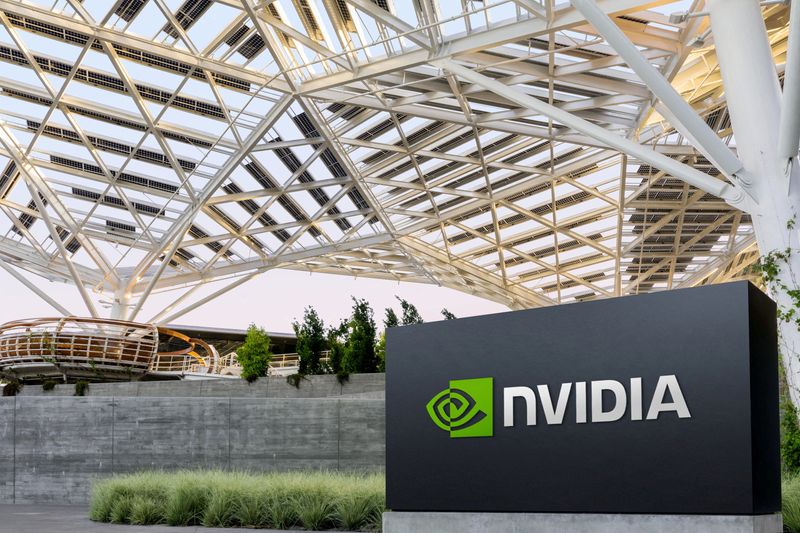By Chibuike Oguh
NEW YORK (Reuters) -Shares of Nvidia Corp (NASDAQ:NVDA) dropped by about 5% to a near five-month low on Tuesday following a Wall Street Journal report that the artificial intelligence (AI) giant may be forced to cancel up to $5 billion worth of advanced chip orders to China in compliance with new U.S. government restrictions.
Nvidia was notified last week that AI chip orders scheduled for delivery next year to major Chinese technology companies, including Alibaba (NYSE:BABA) Group, TikTok owner-ByteDance and Baidu (NASDAQ:BIDU), are subject to the latest export restrictions announced by the U.S. Commerce Department, the Wall Street Journal reported, citing people familiar with the matter.
Nvidia's stock fell to as low as $392.30, down 4.7%, to the lowest level since mid-June. The stock, which has been one of the major drivers of this year's 22% gain in the Nasdaq index, is now down nearly 20% from its record high close of $493.55 reached on Aug. 31. It was last down 2.09%.
"The stock is getting oversold," said Tom Plumb, chief executive and lead portfolio manager at Plumb Funds, which has Nvidia as one of its largest holdings.
"Previously, Nvidia has said this is not going to have a short-term impact but it's more in the long term. We still expect a pretty strong quarter and think it's a great long-term holding, although we are not adding any new positions because of the volatility," Plumb added.
A Nvidia spokesperson said there is "high demand" for its advanced chips, which often require significant lead time to build, and that it is working to allocate orders to its "wide range of customers" in the United States and elsewhere.
"These new export controls will not have a meaningful impact in the near term," the Nvidia spokesperson said in a statement.
Earlier this month, the Biden administration imposed export restrictions on shipments of more AI chips designed by Nvidia and others to China, a move designed to stop Beijing from receiving cutting-edge U.S. technologies to strengthen its military.

The new rules go into effect in November and included export controls to countries including Iran and Russia.
"I think Nvidia is priced for perfection and any trip off can have major impact when you have a stock that is trading at 20 times sales and 40 times earnings," said Thomas Hayes, chairman at Great Hill Capital in New York.